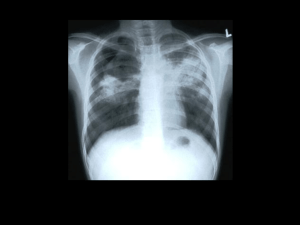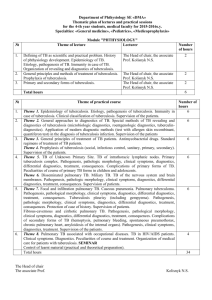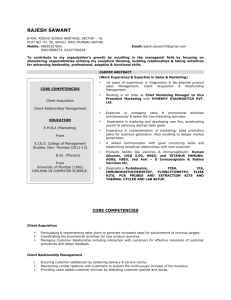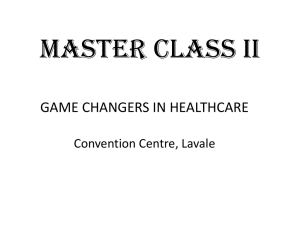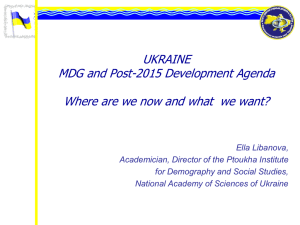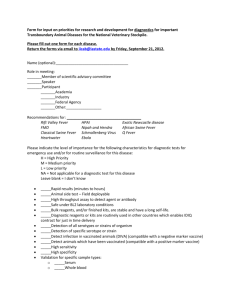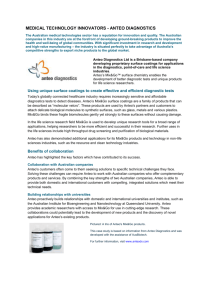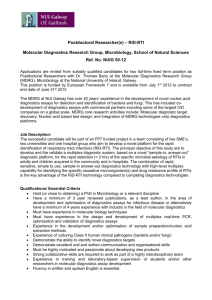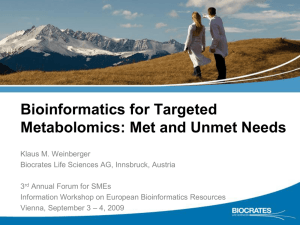periodic1-publish-summary-2015
advertisement
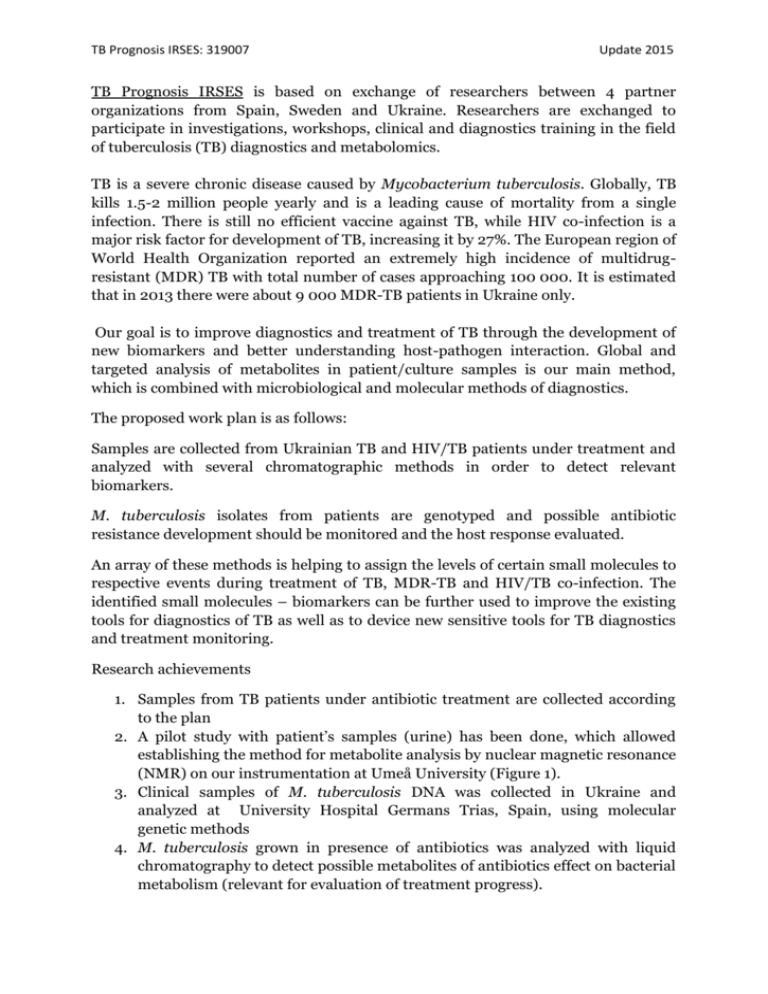
TB Prognosis IRSES: 319007 Update 2015 TB Prognosis IRSES is based on exchange of researchers between 4 partner organizations from Spain, Sweden and Ukraine. Researchers are exchanged to participate in investigations, workshops, clinical and diagnostics training in the field of tuberculosis (TB) diagnostics and metabolomics. TB is a severe chronic disease caused by Mycobacterium tuberculosis. Globally, TB kills 1.5-2 million people yearly and is a leading cause of mortality from a single infection. There is still no efficient vaccine against TB, while HIV co-infection is a major risk factor for development of TB, increasing it by 27%. The European region of World Health Organization reported an extremely high incidence of multidrugresistant (MDR) TB with total number of cases approaching 100 000. It is estimated that in 2013 there were about 9 000 MDR-TB patients in Ukraine only. Our goal is to improve diagnostics and treatment of TB through the development of new biomarkers and better understanding host-pathogen interaction. Global and targeted analysis of metabolites in patient/culture samples is our main method, which is combined with microbiological and molecular methods of diagnostics. The proposed work plan is as follows: Samples are collected from Ukrainian TB and HIV/TB patients under treatment and analyzed with several chromatographic methods in order to detect relevant biomarkers. M. tuberculosis isolates from patients are genotyped and possible antibiotic resistance development should be monitored and the host response evaluated. An array of these methods is helping to assign the levels of certain small molecules to respective events during treatment of TB, MDR-TB and HIV/TB co-infection. The identified small molecules – biomarkers can be further used to improve the existing tools for diagnostics of TB as well as to device new sensitive tools for TB diagnostics and treatment monitoring. Research achievements 1. Samples from TB patients under antibiotic treatment are collected according to the plan 2. A pilot study with patient’s samples (urine) has been done, which allowed establishing the method for metabolite analysis by nuclear magnetic resonance (NMR) on our instrumentation at Umeå University (Figure 1). 3. Clinical samples of M. tuberculosis DNA was collected in Ukraine and analyzed at University Hospital Germans Trias, Spain, using molecular genetic methods 4. M. tuberculosis grown in presence of antibiotics was analyzed with liquid chromatography to detect possible metabolites of antibiotics effect on bacterial metabolism (relevant for evaluation of treatment progress). TB Prognosis IRSES: 319007 Update 2015 Additionally, the project has organized/participated in organization of 7 seminars, 2 workshops and 1 course in cross-disciplinary topics including, metabolomics for diagnostics, multivariate analysis and molecular methods in TB diagnostics. A very important achievement is the establishment/further development of scientific collaboration with a large European network for tuberculosis diagnostics and treatment - TB NET and Ohio State University (OSU), USA. Sharp economic decline in Ukraine can influence vulnerable groups who live with HIV and MDR-tuberculosis. High number of affected people was located in the area of military action and it is not clear whether these people acquire proper medical help and treatment at the moment. Together with TB-NET members we highlighted this issue in a publication in a scientific journal (IJTLD V19 (4), 492-493, 2015) and also our early stage researchers carried out a small study to investigate how well internally displaced people from affected areas in Ukraine are supported by TB healthcare. Both above mentioned activities definitely have a high socioeconomic impact. Collaboration with OSU is in our main research area – diagnostics of tuberculosis using metabolites as biomarkers. Colleagues from OSU have improved a test for detection of one of the key metabolites of M. tuberculosis in urine. This is very promising tool for detection and treatment evaluation of TB in HIV infected individuals and is very relevant for Ukraine as this is the most HIV affected country in Europe. The new test may be further improved by including biomarkers from our study. More information on our web site: http://irses-tuberculosis.info/index.php/en/ Fig.1 The potential of NMR diagnostics of TB
![Working Group on New Diagnostics Quiz []](http://s3.studylib.net/store/data/005832552_1-2f3950d800e81be53089eed30c91f80b-300x300.png)
